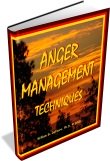Post Traumatic Stress Disorder
Healing And Dealing With PTSD Symptoms
Authored by William G. DeFoore, Ph.D.

You can recover from post traumatic stress disorder. Your mind is perfectly designed to heal itself. When you experienced trauma, a part of you was frozen in that moment, and is waiting for you to come back and heal it. Another word for that frozen condition is "shock."
The thing is, the frozen part of you that holds the memory of your trauma is not dead. As a matter of fact, it's very much alive, and it sends out signals to your brain and body so that you won't forget that it is there, in need of your healing--yes, your healing.
You have what it takes to heal your own post traumatic stress disorder. Telling your story can be a big part!
So, those signals to your brain and body show up as flashbacks, nightmares, anxiety, rage and anger.
You might even have what are sometimes called "body memories." As disturbing as these PTSD symptoms are, they are simply your body/mind telling you that it needs your attention. What you're going to learn here is exactly what kind of attention to give it.
When the memories are just left there to fester, and you don't talk about them, they live mostly in the "emotional brain," also known as the limbic system. That part of the brain doesn't have any language, it's mostly a place of images and emotions. When you start talking and/or writing about your memories, you are connecting them with language which forms new brain connections and allows healthy processing and healing.
By the way, if you're a military veteran, this page on post traumatic stress disorder, more commonly known as PTSD, is just for you.
Steps To Post Traumatic Stress Disorder Healing
- Identify your PTSD symptoms. Just make a list of each mental, emotional and physical problem you're having that you think might be a part of your post traumatic stress disorder. This is an important first step.
- Choose a part of a memory that you are willing to write about, and tell that part of your story. If you want to, you can do the writing on this web site, and then other PTSD survivors and I can offer support, insight and help. Research by Dr. James Pennebaker and others has demonstrated that simply writing about traumatic memories brings significant healing and resolution.
- If you can't do the above steps yet, that's okay. Take tiny, little steps. For example, just write down one symptom, or as many as you can. Then see if you can add another one, and so on until you're done. And if you don't feel you can write about your memories, then write about why you can't, and what you're afraid will happen if you do.
- I want to describe an imagery process that can be very powerful in healing post traumatic stress disorder. Keep in mind that you may not be ready to do this. Believe me, you'll know. If your heart starts racing just reading my words, you're probably not ready. But if you read all the way through my instructions and can still breathe and see straight, then you are probably ready to give it a try.

Imagery Process For Emotional Healing
Still on board? Okay, here we go:
- Take a few deep breaths and try to relax the muscles of your body as much as you can. Good. Now, think of a memory that you feel ready to work on.
- Imagine yourself as the person you are today, traveling back in time to the scene of that memory. This is the creative workshop of your imagination, so you're completely safe. You can enter the traumatic memory and do what needs to be done, or you can stop the scene at any time by opening your eyes.
- If the trauma involved a perpetrator (abuser), you first need to remove that person. You do this without violence or aggression, but with confident power. Approach the perpetrator as the adult you are today, hold up your open hand toward them and say, "Stop. No more. You have to go now." Then move them away from the "younger you", and keep moving them away until they are completely gone from the scene. If you find this too hard, or impossible, don't worry. This just means you have some anger work to do first. You will find physical anger release exercises described in the free Ebook you get for signing up for the Healing Anger newsletter, and in the Anger Management Techniques audio program.
- Focus on the image of your younger self that was traumatized, in that memory. So, you are the present-day you looking at the image of yourself as you were when the trauma occurred. Now, if you feel that you can, go up to that "younger you" and say, "I'm here. I am so sorry this happened. I will not leave you. You didn't do anything wrong. It's not your fault." Choose the words that fit best for you.
- See if the "younger you" (often a child) is willing to let you hold them. If so, great...if not, just get as close as they feel comfortable with. Relax. Your job is to let them know that you are there for them, and that you love them unconditionally. And that you are not going to leave them.
- When the "younger you" seems ready, take them out of the traumatic scene to a safe place. This can be a real or imaginary place--all that matters is that it feels safe and comfortable for you and the "younger you". This is your healing place. Hang out there with the traumatized part of you and attend to their healing in any way that feels right to you.
- If the "younger you" is unwilling to come with you, or if they're confused, afraid or angry, that's okay. Just tell them, "Whatever you feel is okay with me. I'm just going to hang out here with you. I won't leave you, no matter what."
- Once you're in the safe place, look back together, you and the "younger you", and notice that you're not stuck in the traumatic scene any more. This can be a wonderful moment in healing post traumatic stress disorder.
- Picture that "younger you", the traumatized you, on a daily basis after that until you see them start to calm down and relax into the new life that you've created for yourself in the present time.

More Help For PTSD Symptoms
Other things to consider in healing post traumatic stress disorder include:
- Exercise. This helps with everything. It will help you to do the emotional work if you're physically healthy.
- Eat a healthy, balanced diet. If you have an eating disorder, healing your post traumatic stress disorder may be very difficult or impossible until you overcome this compulsive-addictive disorder.
- Address any addictive issues you may have. If you're an alcoholic or addicted to drugs, doing the above work to heal your post traumatic stress disorder probably will not work at all.
- Even if you exercise, eat well and are not addicted to anything, your post traumatic stress disorder healing may require more than you can get from just reading this web page and doing these exercises. You may need professional counseling, or an intensive anger management program. Also, be sure and check out our books that are specifically designed to facilitate emotional healing and recovery from problems like post traumatic stress disorder. The book entitled, Nurturing Your Inner Child can be especially helpful for trauma healing. It even has a guided imagery component specifically for healing the emotional wounds of your inner child.
- You may be experiencing what has become known as "complex PTSD," which basically means post traumatic stress disorder resulting from long-term trauma, usually involving emotional or physical captivity. This requires more in-depth and prolonged treatment.
- Most importantly, don't give up on yourself! You can do this. Set your mind to it, take one step at a time, and you will get there.
Read this article on post traumatic stress disorder from the Mayo Clinic.
Thanks for visiting. Be sure and tell others about this site, and tell your story so that you can benefit from the writing and others can benefit from reading what you write! Remember, you are your own best anger management resource.
Ready To Heal Your PTSD
By Telling Your Story?
Just start writing. Don't worry about a thing. I'll edit as needed. Just tell your story as best you can.
Other PTSD Stories
Click below to see contributions from other visitors to this page...
PTSD That Won't Let Me Live 




The first thing I remember really vividly is the first time I met Kerry. I was five years old and we walked into the church building where my dad had …
PTSD After Emotional/verbal Abuse? 




My boyfriend and I were friends who began a sexually exclusive but not committed friends-with-benefits relationship. About six months into this, he needed …
Feeling The Effects Of My Abuse After Six Years And It Scares Me 




I was in an emotionally and slightly physically abusive relationship when I was about 14 till about 16. I never really understood I was being abused …
Abused And Emotionally Neglected In My Family 




I'm not sure how young I was when the sexual abuse started. I remember my birth father only vaguely. My parents divorced when I was about 18 months old. …
Childhood Beatings By Belt 




I have done a lot of work to heal from childhood physical abuse of beatings; not spankings.
I was young when it started, 7, and a little slip of a thing. …
A Walk Through Hell 




I believe that this world is all about a walk through living hell. It started for me as a baby. I remember it. I remember being lifted up as a tiny wee …
Thank You Not rated yet
I was cleaning out my inbox and I accidentally deleted your response to my story titled "School" about my emotional conflicts related to high school. I …
School Not rated yet
I think I'm more sensitive to verbal harassment than others because I've always been easily upset by it, and have had a hard time letting go of even the …
- Home
- Anger Management Worksheets
- Post Traumatic Stress Disorder
We receive commissions on Amazon sales on this website.




New! Comments
Have your say about what you just read! Leave me a comment in the box below.